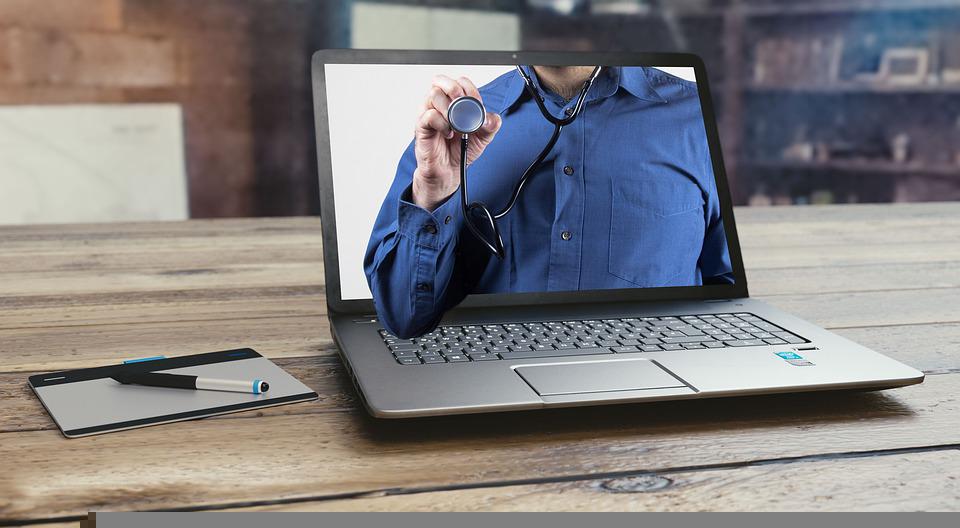Obtaining regular healthcare isn’t always easy. Patients often have to leave their homes and duty posts to meet up with doctor’s appointments. The hassle typically makes people put off scheduling an appointment indefinitely.
For most patients with chronic conditions, frequent appointments are inescapable. Some people have to travel long distances to the clinic for a very brief consultation. While most of us are used to this, wouldn’t life be so much easier if we could talk to a doctor without ever stepping out of our comfort zones? That’s precisely what telemedicine is all about.
What is telemedicine?
Telemedicine is the ability of patients to talk with healthcare providers remotely via live chat or phone calls. Although the practice isn’t entirely new, it has gained widespread adoption ever since the Covid-19 pandemic. Patients and healthcare providers saw the benefits of telemedicine and how it makes life much easier for both parties.
7 ways telemedicine makes healthy living easier
Telemedicine makes healthy living easier by bringing sick people closer to healthcare providers without the limitation of distance and time.
Here are specific ways telemedicine benefits patients and healthcare providers:
1. Reduced time, energy, and cost of seeing the doctor
As mentioned, many people with chronic conditions have to see doctors frequently for ongoing care. That requires time and energy, which can be challenging for sick persons, especially those with mobility issues. With telemedicine, the challenges of frequent doctor visits are put to bed. Some of these challenges include:
- Patients living far away from their primary care provider
- Having difficulty with mobility
- Not being able to drive, thereby spending excessively on transportation
- Having to take permission from work frequently for doctors’ visits can put the patient’s job at risk.
2. Better monitoring and more rapid health improvement
Many people go off medication or forget to practice doctor’s recommendations the longer they stay without talking with their healthcare provider. This can slow down treatment progress.
With telemedicine, getting regular checkups becomes much easier. Your doctor will be able to follow up with you frequently and remotely, encouraging you to stick to your prescription or whatever therapy you’re undergoing. This, in turn, promotes better health.
3. Easy access to specialists
Suppose you have a mental disorder or other health condition your primary care provider does not handle, such as low testosterone issues. The truth is, you may not find a center very close to your neighborhood that provides such specialized care. But telemedicine enables you to search for specialists online and consult with them via live chat. For instance, you can locate a telemedicine TRT provider from home whenever you experience the symptoms of low testosterone. You need not schedule any special appointments, making emergency consultation accessible.
4. Access without health insurance
Accessing healthcare services is a challenge for many people without health insurance. That’s because doctors treat uninsured patients differently, and invoicing can get complicated for them. But most providers offering telemedicine allow cash payment without requiring insurance or referrals.
5. Lower overhead cost
Even for people with health insurance, seeing a doctor or therapist can be expensive. By using remote devices and online connections, telemedicine removes the overhead cost of arranging a dedicated place to receive patients for consultation. This reduces costs for both providers and patients. Generally, telemedicine psychiatrist appointments cost less than in-person visits.
6. Get a doctor’s opinion at odd hours
Imagine having an episode in the middle of the night. You don’t understand what’s happening to your body, and you can’t rush to the hospital 6 miles away. What do you do?
Most telemedicine providers offer round-the-clock services, allowing you to get their help whenever you need it. For example, a telemedicine provider can quickly give instructions on what to do about the episode you or your loved one is having. That simple instruction could prove to be a life saver.
7. Prompt psychiatric support
If there’s one greatest beneficiary of telemedicine, it would be people with severe mental health challenges. People experiencing chronic stress or major depression would require face-to-face interaction with a therapist right there on the spot. Having to drive or commute to see an expert can add to their stress and frustration, and they may just cancel it altogether. Frequent therapy sessions would be required to monitor one’s mental health, and telemedicine makes that therapeutic care very accessible.
Final words
Being able to talk to a doctor immediately and stress-free can be reassuring and invaluable to a patient’s health. Whatever symptoms you’re experiencing, be assured that an expert is just a phone call or Google search away.

